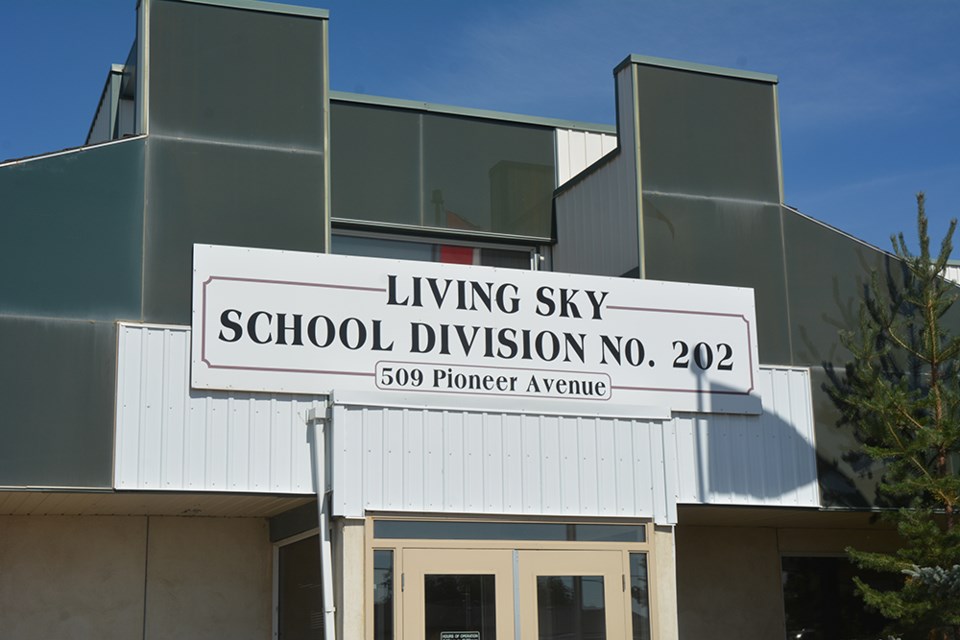Last Wednesday, Living Sky School Division voiced a number of their concerns to MLAs Larry Doke and Herb Cox.
Much of what Living Sky does involves the Ministries of Health and Social Services, and staff discussed the division's need for interministerial collaboration.
Superintendent of Student Services Nancy Schultz said the agencies are isolated and collaborating together "at the grassroots level" is impeded by "stop gaps at the upper levels."
Accessing private health records of students who need help, "is a difficult experience," Schultz said, as such agencies "don't want to share info."
Schultz said the school division is "very respectful of privacy of individuals," although "we need to know what's happening" in order to provide the same support. Schultz said communicating with the Saskatchewan Health Authority isn't straightforward and often involves speaking with several people.
About the interrelatedness of ministries, Living Sky Director of Education Brenda Vickers said "some of the cuts in health affect us."
Superintendent of Curriculum and Instruction Ruth Weber spoke of an early childhood liaison who was a primary contact with the schools and agencies. After cuts, "it felt like a loss in the community due to the connections the worker made with young students."
Regarding communities, Doke asked if some areas were worse than others.
Schultz said some communities with only a grocery store, hotel and school have no mental health supports at all.
Suicide prevention strategy and supports was also a topic. Vickers spoke of young people feeling suicidal being turned away at hospitals.
In April, the News-Optimist wrote about a doctor prepared to send home a young man shortly after a suicide attempt. The young man's family was frustrated.
Living Sky staff carried out much of the crisis response after recent suicides of Living Sky students, Vickers said.
Preventative measures for youth suicide, Vickers said, are a "long-term fix" because "something very deep needs to shift."
Living Sky staff also discussed the education funding model. Vickers said ministry goals, including getting 90 per cent of kids ready to learn exiting kindergarten, can work against the funding model.
The recently implemented funding formula, according to some board members, allocates more funding to places with more students, and less funding to places with less students, such as in rural areas.
Doke asked how many students were entering kindergarten and who were assessed to not be ready for kindergarten. The answer was 52 per cent.
A number of factors are considered when funding school divisions. Vickers argued the nature of the students ought to be considered in funding distribution.
Many students in Living Sky School Division are, as Vickers said, "high cost kids," in the sense that they "need a teacher, EA and more students services time," among other things.
In places that receive more funding, Vickers said administrators can spend "$1,000,000 for pre-kindergarten programs."
According to Vickers, Living Sky "can't find $50,000 to go up half a teacher at a school that's gone up 30 kids." Vickers argued "something's not right with the weight of the factors."
Darroch said services should go to where the population is higher, "but in the city [people are] able to access services from other service providers." In certain places, the school division is providing such services, Darroch said.
Pethick said situations in rural Saskatchewan can be much different than the city experience.
"It's one thing to live in [cities], and it's a whole other issue when you're living in Leoville, Saskatchewan and you don't have those professionals," Pethick said.
Pethick added some parents "don't have the financial ability to drive their kids."
Wouters argued in favour of the previous funding formula, and called the current one "simply unfair."
Doke and Cox asked a few questions during the presentation. Cox said the meeting "was quite intense" and said a lot of what was discussed Wednesday didn't come up at a previous meeting in which representatives of the Ministry of Education visited the school division.
"There's always a need for money," Doke said, "and I am concerned about the mental health side of things. That bothers me, but it's everywhere. That's not an excuse, that's fact. So I'm hoping that we can do something there."
Doke acknowledged many with mental health issues must drive long distances for services.
"In the same sense, you can't have a cop in every corner and you can't have a mental health worker in every corner," Doke said. "But we have to do a better job, there's no doubt about it."




